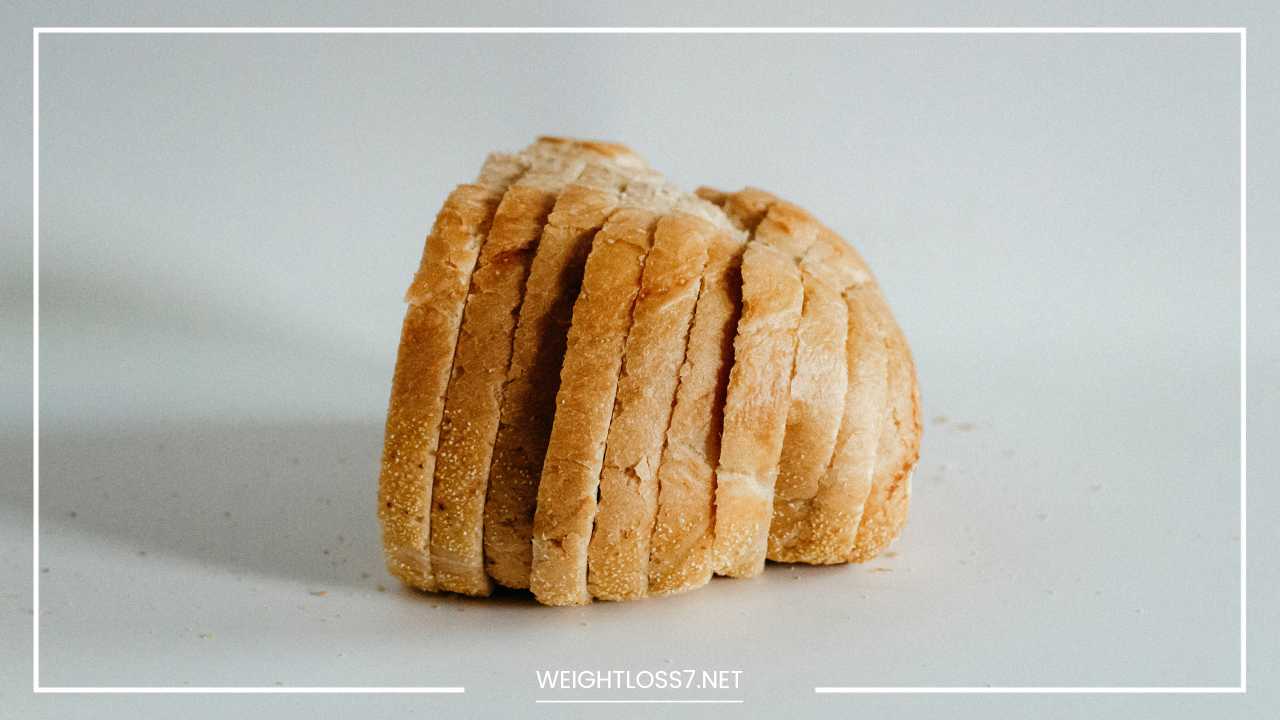How Do Carb Blockers Work

Carb Blockers
Unveiling the Mystery: How Do Carb Blockers Work and Should You Try Them?
In the ever-evolving world of weight management, carb blockers have emerged as a popular topic, often positioned as a magic bullet for effortless weight loss. But before you rush to stock up on these supplements, let’s embark on a journey to understand how carb blockers function and whether they truly live up to the hype.
The Intricate Dance of Carbs and Digestion:
Our bodies rely on carbohydrates for fuel. They come in two main forms: simple carbs, the readily available energy source found in sugary treats and processed foods, and complex carbs, the powerhouse of sustained energy present in whole grains, fruits, and starchy vegetables.
Complex carbs are the stars of this show, but they require some processing before they can be used.
Imagine a complex carb as a long chain of sugar molecules linked together. Here’s where the digestive system steps in:
- The Chewing Phase: The journey begins in the mouth, where physical breakdown of food occurs through chewing. This initial step doesn’t significantly impact carbs.
- The Stomach’s Mixing Pot: The chewed food then moves to the stomach, where it’s churned and mixed with gastric juices. This process doesn’t affect carb breakdown either.
- The Small Intestine: Where the Magic Happens: Once in the small intestine, the real work of carb digestion begins. Here, specialized enzymes called amylases (alpha-amylase being the primary player) take center stage. These enzymes act like molecular scissors, snipping the long chains of complex carbs into smaller, single sugar molecules (like glucose).
- Absorption into the Bloodstream: These single sugars are then readily absorbed through the walls of the small intestine into the bloodstream.
- Blood Sugar Spike and the Insulin Response: The influx of glucose in the bloodstream triggers the release of insulin, a hormone produced by the pancreas. Insulin acts as a key, unlocking the doors of our cells and allowing glucose to enter for energy production.
Introducing Carb Blockers: Disrupting the Digestion Symphony:
Carb blockers aim to disrupt this well-orchestrated digestive symphony. They typically contain one or more of the following ingredients, each with a unique strategy to hinder carb digestion:
- Fiber Powerhouse: Soluble fiber, found abundantly in beans, psyllium husk, and some fruits, forms a gel-like substance in the gut. This viscous mesh can trap some of the starches, hindering their interaction with digestive enzymes and potentially delaying or reducing their absorption.
- Enzyme Inhibitor Brigade: Alpha-amylase inhibitors, derived from sources like white kidney beans, act like undercover agents. They bind to alpha-amylase enzymes, preventing them from efficiently breaking down complex carbs into absorbable sugars.
- Sugar Showdown: Some carb blockers contain specific sugars like acarbose. These sugars act competitively, mimicking the natural binding sites of complex carbs on the enzymes. By occupying these sites, they hinder the enzymes’ ability to break down the actual starches.
The Science Behind Carb Blocker Efficacy: A Measured Approach
The theory behind carb blockers is straightforward: by inhibiting carb digestion, they prevent a portion of the carbs from being converted into blood sugar and contributing calories.
This, in turn, could lead to reduced calorie intake and potentially weight loss. However, the research on their effectiveness paints a complex picture.
Promising Signs, But Not a Slam Dunk:
- Modest Weight Loss: Studies suggest a potential weight loss of 2-4 pounds over several weeks when carb blockers are used alongside a healthy diet and exercise program [1]. This is encouraging, but the magnitude of weight loss might be underwhelming for some.
- Individuality Matters: The effectiveness of carb blockers can vary significantly depending on the specific type and dosage used, the individual’s overall diet composition, and their gut health. Factors like gut microbiome composition can influence how efficiently these supplements function.
- Limited Long-Term Data: There’s a lack of robust research on the long-term safety and efficacy of carb blockers for weight management. More extensive studies are needed to understand their long-term impact on health.
Beyond the Scale: Potential Side Effects and Considerations
While generally safe for most healthy individuals, carb blockers can have some drawbacks:
- Gut Gone Wild: Gas, bloating, and diarrhea are common side effects, especially at higher doses. These can be quite uncomfortable and potentially deter people from continuing their use.
- Nutrient Shortfall: Excessive blocking of carbs can also impede the absorption of certain vitamins and minerals that piggyback on the same digestive pathway.
- Medication Mischief: Carb blockers may interact with medications like diabetes drugs. Consulting a doctor before use is crucial, especially for individuals with pre-existing health conditions.
Are Carb Blockers a Sustainable Solution or a Passing Fad?
Carb blockers might offer a temporary weight loss boost, but they shouldn’t be seen as a quick fix for several reasons:
- Diet and Exercise: The Pillars of Success: Building healthy eating habits and incorporating regular physical activity are the cornerstones of sustainable weight management. A balanced diet rich in whole foods provides essential nutrients and keeps you feeling satisfied, while exercise helps burn calories and build muscle mass, which further boosts metabolism. Carb blockers can’t replicate these core elements.
- The Dependence Trap: Relying on carb blockers can create a dependence and hinder the development of healthy portion control skills and a mindful approach to eating. It’s crucial to learn how to make healthy food choices and build a sustainable relationship with food, not rely on a supplement to do the job.
- The Nutritional Powerhouse of Whole Foods: Whole grains, fruits, and starchy vegetables offer a treasure trove of essential vitamins, minerals, and fiber that are crucial for overall health and well-being. Carb blockers primarily target the carbohydrate content, neglecting the other vital nutrients these foods provide.
Building a Foundation for Lasting Change:
Instead of relying on supplements, consider incorporating these strategies for healthier carb management and sustainable weight loss:
- Embrace Whole, Unprocessed Carbs: Choose whole grains like brown rice, quinoa, and whole-wheat bread over refined carbohydrates like white bread, pastries, and sugary drinks. Whole grains are packed with fiber, which keeps you feeling fuller for longer and helps regulate blood sugar levels.
- Mindful Eating is Key: Pay attention to hunger and fullness cues. Eat slowly and savor your food, allowing your body to register satiety signals. Avoid mindless snacking and focus on eating until comfortably satisfied, not stuffed.
- The Power of Pairing: Combine complex carbs with protein and healthy fats. This creates a balanced meal that slows down digestion, promotes satiety, and keeps blood sugar levels stable. For example, pair whole-wheat toast with avocado and eggs for a satisfying breakfast, or enjoy a stir-fry with brown rice, vegetables, and lean protein for dinner.
- Fiber is Your Friend: Increase your intake of fiber-rich foods like fruits, vegetables, beans, and lentils. Fiber helps slow down the absorption of carbohydrates, preventing blood sugar spikes and promoting satiety.
The Takeaway: Knowledge is Power
Carb blockers may hold some promise for weight loss, but the evidence is not conclusive and their long-term effects remain unclear.
They can have side effects and are unlikely to be a magic bullet. Building a foundation of healthy eating habits and regular exercise is a more sustainable and effective approach for long-term weight management and overall well-being.
Here are some additional key takeaways:
- Consult a doctor or registered dietitian before starting any new supplement, including carb blockers, to ensure their safety and suitability for your individual needs. This is especially important if you have any pre-existing health conditions or are taking medications.
- Focus on making sustainable changes to your diet and lifestyle. Building healthy habits will not only help you manage your weight but also improve your overall health and well-being.
- Remember, weight loss is a journey, not a destination. There will be setbacks along the way. Be kind to yourself, stay motivated, and celebrate your progress, no matter how small.
By adopting a holistic approach that prioritizes healthy eating, regular physical activity, and mindful living, you can achieve lasting weight management success and improve your overall health for the long term.
Delving Deeper: The Different Types of Carb Blockers
While the basic concept of carb blockers remains the same (interfering with carb digestion), there are several variations available, each with its own unique properties:
-
Alpha-Amylase Inhibitors:
- Source: Primarily derived from white kidney beans.
- Mechanism: Binds to alpha-amylase enzymes, hindering their ability to break down complex carbs into simple sugars.
- Research: Studies show some promise for modest weight loss when combined with a calorie-controlled diet [2]. However, the effectiveness can vary depending on the dosage and individual factors.
-
Fiber-Based Carb Blockers:
- Source: Found in soluble fiber sources like psyllium husk, glucomannan, and some fruits like apples and berries.
- Mechanism: Forms a gel-like substance in the gut that traps some starches, delaying their digestion and absorption.
- Research: Evidence suggests that fiber-based carb blockers may have a mild effect on reducing blood sugar spikes and potentially aiding in weight management [3]. However, more research is needed to understand their long-term impact.
-
Sugars as Carb Blockers:
- Source: Primarily acarbose, a prescription medication in some countries, but also found in some over-the-counter supplements.
- Mechanism: Mimics the structure of complex carbs, competitively binding to the active sites on digestive enzymes, thereby hindering their ability to break down starches.
- Considerations: Due to its stronger effect, acarbose can cause more pronounced side effects like gas and bloating compared to other carb blockers. It’s also typically only available by prescription.
Beyond Weight Loss: Potential Health Benefits of Carb Blockers
While the weight loss effects of carb blockers are debatable, there’s some evidence suggesting potential benefits for other health conditions:
- Blood Sugar Management: Carb blockers may help regulate blood sugar levels by slowing down carb digestion, potentially benefiting individuals with prediabetes or type 2 diabetes [4]. However, it’s crucial to consult with a doctor before using them alongside diabetes medications.
- Reduced Cholesterol: Some studies suggest that certain carb blockers, particularly fiber-based ones, might contribute to lower LDL (“bad”) cholesterol levels [5]. This could be due to fiber’s ability to bind cholesterol in the gut and promote its excretion.
Important Considerations Before Trying Carb Blockers
If you’re considering trying carb blockers, here are some crucial factors to keep in mind:
- Individual Needs: Not everyone responds the same way to carb blockers. It’s best to discuss them with your doctor or a registered dietitian to determine if they’re appropriate for your individual needs and health goals.
- Quality Matters: Choose carb blockers from reputable brands that adhere to quality control standards. Look for third-party certifications like USP (United States Pharmacopeia) or NSF International for added assurance.
- Dosage is Key: Follow the recommended dosage on the product label and avoid exceeding it to minimize the risk of side effects.
- Not a Magic Wand: Remember, carb blockers are not a magic solution for weight loss. They should be used alongside a healthy diet and regular exercise for optimal results.
The Final Verdict: A Balanced Approach
Carb blockers offer a glimpse into the world of manipulating carb digestion. While they might provide some modest benefits for weight loss or blood sugar management, the evidence is not definitive.
Additionally, potential side effects and the lack of focus on building long-term healthy habits are drawbacks to consider.
Here’s the key takeaway:
- Focus on creating a sustainable lifestyle that incorporates a balanced diet rich in whole foods, regular physical activity, and mindful eating practices. This holistic approach is the cornerstone of successful weight management and overall well-being.
- If you’re still curious about carb blockers, consult a doctor or registered dietitian to discuss their potential benefits and drawbacks in the context of your individual health and goals.
Remember, lasting weight management and optimal health are journeys, not destinations. Embrace the process, celebrate your progress, and prioritize making sustainable changes for a healthier and happier you.

















